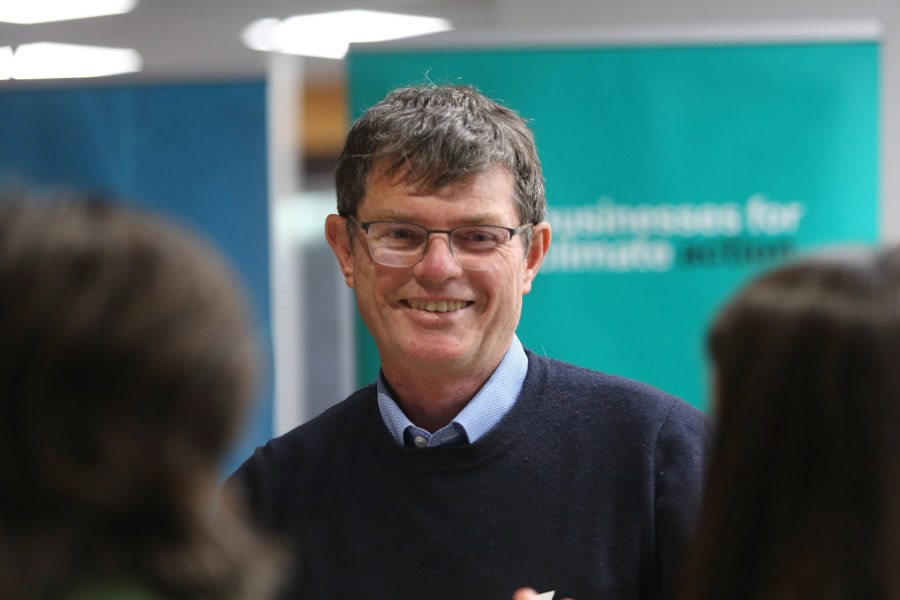Mission Zero hosts numerous climate change workshops throughout the year. In May 2024, our first Behaviour Change session featured several round-table discussions led by professionals experienced in sustainable transport, energy, waste, and procurement.
Lisa Bridson is a Sustainability Assurance Advisor for McHugh & Shaw, with extensive experience in sustainability, waste management and procurement.
She has held numerous positions in central and local government, including Procurement and Sustainability Advisor for Ministry of Economic Development, Chair of Hutt City Council’s Regional Waste Management Plan Committee (as a Hutt City Councillor) and, most recently, Sustainability Lead for Nelson Marlborough Health.
Drawing on these experiences, Lisa led a comprehensive discussion focused on sustainable procurement strategies.

Lisa began by outlining three key considerations for sustainable procurement:
- Greenwashing: The act of making false or misleading statements about the environmental benefits of a product or practice.
- Whole of Life: Considering all aspects of the use, operation, maintenance, and disposal of an asset from concept development, design, and construction, to infrastructure redundancy and demolition.
- Supplier Engagement: The benefits of working closely with suppliers to achieve sustainability goals.
Lisa highlighted the role of packaging and branding in greenwashing, and cautioned against suggestive language that can distract, mislead, or overstate the obvious.
For example, terms like ‘Greener’ might lead buyers to overlook the polluting properties of a product. ‘Compostable’ might only apply under specific heat treatments, not achievable at home, and ‘CFC-free’ might be a mandated quality of a product, not unique to the claimant brand.
In contrast, ‘greenhushing’ – the act of downplaying ‘green’ credentials to avoid heightened scrutiny – should be discouraged. An active and thorough sustainability plan should provide companies with the confidence to communicate their successes and their lessons learned. Independent certification also determines that businesses aren’t just making empty claims about themselves.
When considering ‘whole of life’ impacts, it is important to work alongside finance departments to understand the assignation of capex vs opex. Efficiencies, such as energy consumption during use, need to be considered, and the procurement process is an opportunity to extend the working life of a product, reducing embodied carbon – for example, by deciding to turn a fleet over every five years instead of every three.
Open and ongoing conversations with suppliers are essential for sustainable procurement, setting out intentions, identifying targets and encouraging better practices down the line. Nelson Marlborough Health, for example, were able to reduce packaging waste and introduce ‘Meat Free Mondays’ in agreement with their food provider.
Sustainable procurement, Lisa suggested, is about knowing what is sustainable, what is carbon neutral, what is repairable, and what is just plain rubbish, and being able to influence appropriate purchasing decisions. Understanding key drivers across varying departments is critical in this context. Aligning these drivers with the business’ environmental goals is the sustainable procurer’s ultimate achievement.



